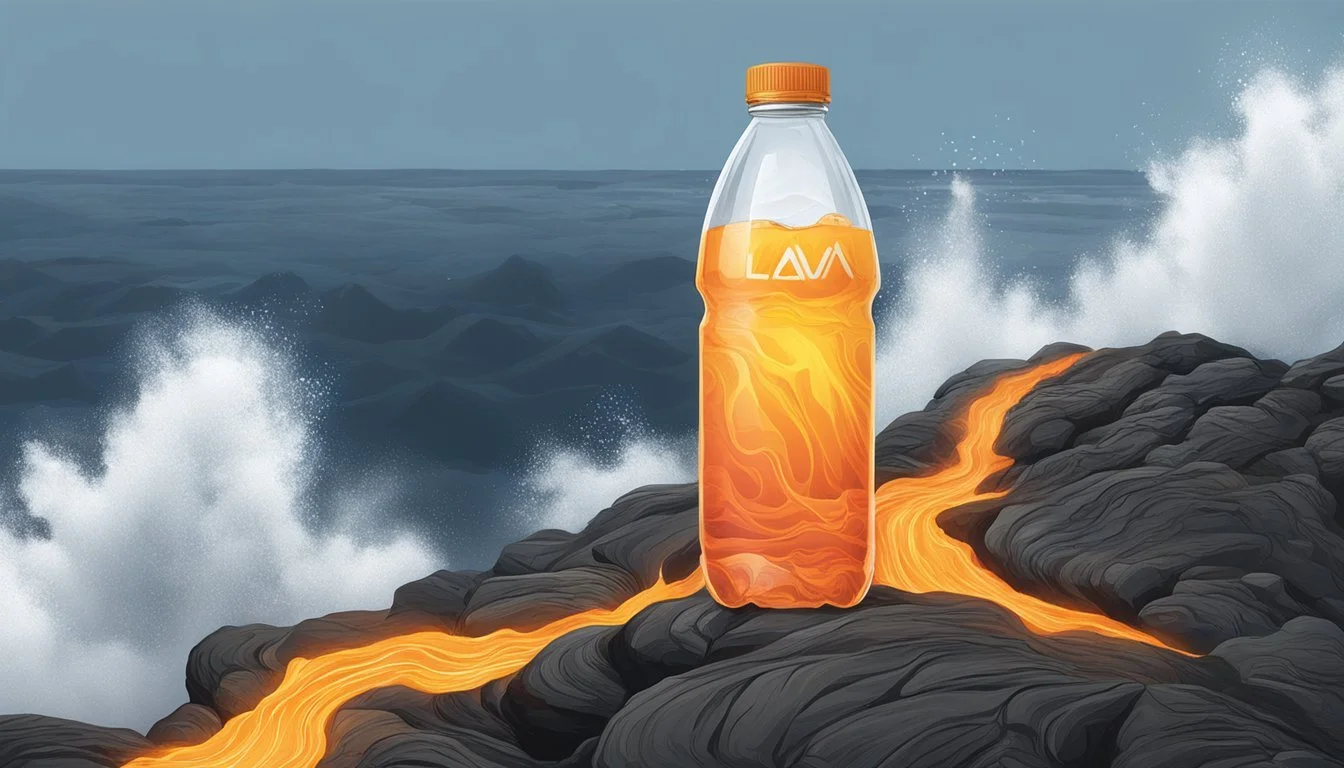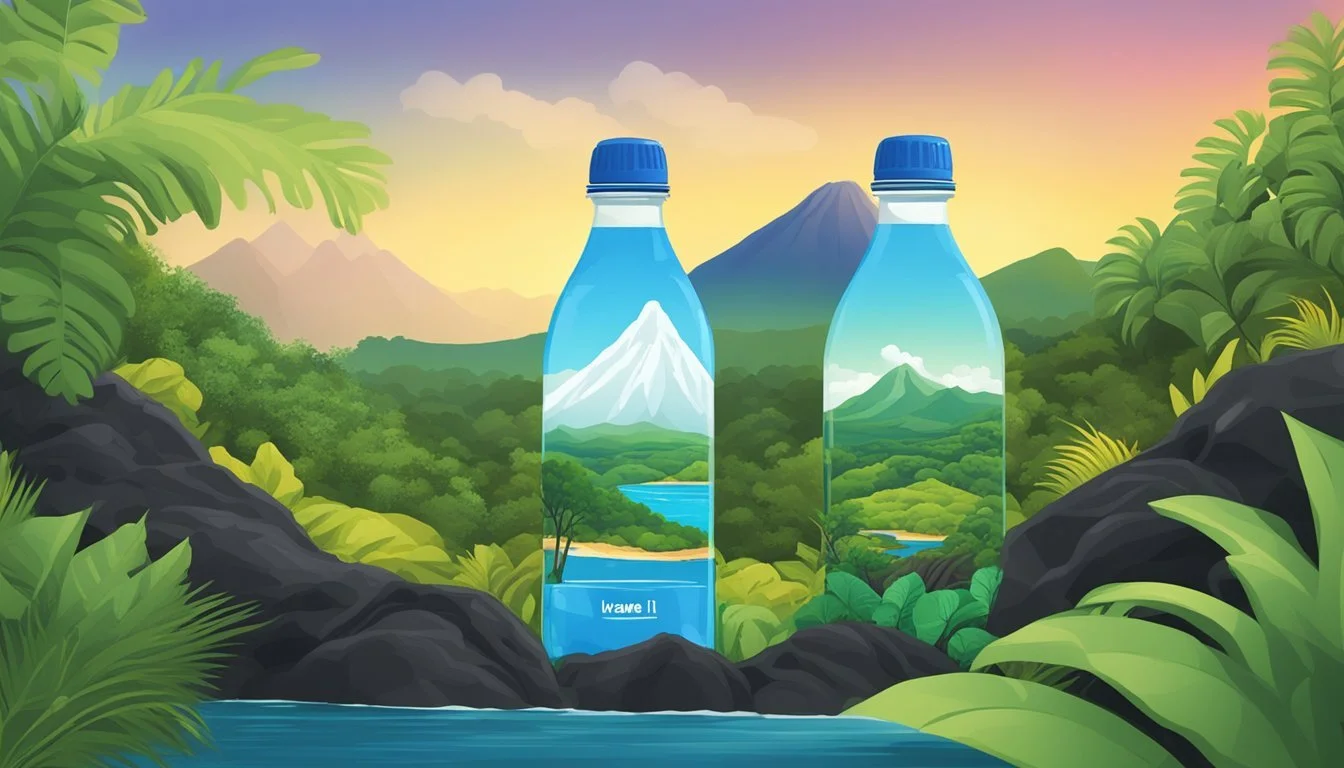Hawai’i Volcanic vs. Augi
Which Bottled Water is Better?
Choosing the right bottled water can be a daunting task, especially with so many options available. Two popular brands in the market are Hawai’i Volcanic and Augi. While both offer unique qualities, there are distinct differences that might sway your choice depending on your priorities such as health benefits, taste, and environmental impact.
Hawai’i Volcanic boasts a naturally alkaline pH ranging between 7.6 and 8.2, which can contribute to maintaining good health by helping balance body acidity. This water is derived from the Mauna Loa volcano and contains essential minerals, providing a fresh and crisp taste. Its young vintage, being only around 30 days old, ensures that the water retains its natural properties without the need for chemical processing.
Augi, on the other hand, is sourced from the Leesburg, Virginia municipal supply and undergoes purification processes. Although some might find its slight sulphuric taste unappealing, others appreciate the unique profile. Given the environmental consideration, Hawai’i Volcanic’s sourcing method may appeal more to those looking for a natural and minimally processed option.
Understanding Volcanic Water
Volcanic water, especially from sources like the Mauna Loa Volcano, is renowned for its natural filtration, unique properties, and purity. This water's journey through volcanic landscapes imparts distinctive mineral compositions and an alkaline pH balance, making it a noteworthy option for hydration.
Natural Composition and Filtration
Volcanic water's unique qualities begin with its source. Located on volcanoes like Mauna Loa, the water starts as rain or snowmelt. As it flows down the volcanic slopes, it undergoes natural filtration through porous volcanic rock. This process not only purifies the water but also enriches it with minerals.
Porous lava rock acts as a natural filter, removing impurities and adding minerals like silica, calcium, and magnesium. This extensive filtration results in water that is particularly pure and has an alkaline pH. The filtration process can extend through up to 14,000 feet of volcanic rock, making the filtering process highly effective.
Unique Properties of Hawaiian Volcanic Water
Hawaiian volcanic water from sources like the Mauna Loa Volcano carries unique properties due to its passage through volcanic rock. This water typically contains a variety of minerals, including silica, calcium, potassium, magnesium, and sodium. These minerals contribute to the water's health benefits.
Silica is especially noteworthy for its potential support of bone, skin, hair, and nail health. The presence of other minerals like calcium and magnesium also supports bodily functions. Furthermore, the water's natural alkalinity helps maintain the body's pH balance, making it a more desirable choice for those looking to stay hydrated.
The Journey of Water Through the Volcanic Landscape
The journey of volcanic water begins on the peaks of volcanoes such as Mauna Loa. Rain and snowmelt travel down the slopes, passing through layers of porous lava rock. This not only purifies the water but also integrates minerals from the volcanic rock into it.
As water makes its way through the volcanic landscape, it flows through natural aquifers and eventually reaches deep wells or springs. The depth and purity of these sources contribute significantly to the water's reputation for cleanliness and mineral content. This complex journey results in Glass Lava Filtered Still water that stands out for its purity and beneficial properties.
Health and Vitality
Hawai’i Volcanic and Augi bottled waters offer distinct health benefits due to their unique mineral compositions. These include differences in their alkaline levels and mineral content, all of which can impact hydration and vitality.
Mineral Content and Its Benefits
Electrolytes are essential for hydration and maintaining the body's fluid balance. Hawai’i Volcanic is rich in natural electrolytes such as potassium, magnesium, and calcium. These minerals are crucial for muscle function, making Hawai’i Volcanic an excellent choice for athletes and active individuals.
The higher pH level of Hawai’i Volcanic categorizes it as alkaline water. Its high pH can help neutralize acidity in the body, potentially boosting the immune system and overall vitality. Augi, while also containing essential minerals, has a standard pH level closer to neutral, making it less alkaline but still beneficial for daily hydration.
Transformative minerals such as silica found in both brands are important for maintaining healthy skin, hair, and nails. Silica in drinking water has been shown to support cognitive health, reducing risks associated with cognitive decline.
Overall, Hawai’i Volcanic offers a distinct advantage with its naturally higher alkaline content and broader spectrum of beneficial minerals.
Environmental Impact and Sustainability
Both Hawai’i Volcanic and Augi claim to prioritize environmental impact and sustainability through responsible sourcing, ethical packaging, and numerous sustainability initiatives. This section explores these aspects with a focus on specific practices and commitments.
Responsible Sourcing and Production
Hawai’i Volcanic sources its water from an artesian aquifer, where natural filtration through volcanic rock enriches the water with minerals. This approach minimizes environmental disruption, using less than 0.003% of the water yielded to ensure sustainability.
Augi, on the other hand, draws from pristine rainfall-fed aquifers. Their practices emphasize minimal impact on natural water systems and ensure that aquifers are not overexploited. Both brands support eco-friendly practices and emphasize sustainable sourcing methods.
Packaging and Ethics
Hawai’i Volcanic uses RPET (Recycled Polyethylene Terephthalate) packaging, which is both BPA-free and made from recycled plastic. This reduces the new plastic production and encourages recycling. In addition, they offer reusable glass bottles as a more environmentally friendly alternative.
Augi packages its water in BPA-free and recyclable bottles. They promote the use of reusable bottles to decrease plastic waste. Augi’s commitment to ethical practices extends to their packaging facilities, ensuring fair labor and environmentally conscious processes.
Sustainability Initiatives
Hawai’i Volcanic actively contributes to various sustainability initiatives. They partner with organizations like PumpAid to provide clean water solutions in communities that lack access. Their production process also aims to reduce carbon emissions through efficient logistics and renewable energy use.
Augi supports local community water sustainability projects and invests in environmental conservation efforts. They are committed to reducing their carbon footprint by optimizing transportation routes and using renewable energy sources. Their sustainability ethos extends to global partnerships that focus on water preservation and environmental protection.
By focusing on these key areas, both water brands demonstrate a strong commitment to sustainability and environmental responsibility.
Tasting Notes and Consumer Experience
Hawai’i Volcanic and Augi offer distinct experiences to water enthusiasts. Differences in taste profiles, pH levels, and mineral content make each brand unique.
Profile Comparison
Hawai’i Volcanic
Taste: Crisp, clean, with a slight sweetness.
pH Level: Naturally alkaline at 8.0.
Minerals: Rich in minerals due to volcanic filtration.
Consumer Experience: Many find it refreshing and sophisticated, ideal for health-conscious individuals.
Augi
Taste: Smooth, slightly mineral-laden, with no aftertaste.
pH Level: Balanced at 7.5.
Minerals: Moderately mineralized, providing essential nutrients.
Consumer Experience: Appreciated for its balanced profile and consistent quality, suitable for everyday hydration.
Each water has its own strengths, tailored to different consumer preferences and needs.
Comparative Analysis: Hawai’i Volcanic and Augi
This section compares Hawai’i Volcanic and Augi based on their product offerings, brand positioning, water quality, and purity. These aspects are crucial for consumers seeking the best bottled water options.
Product Offerings and Brand Positioning
Hawai’i Volcanic:
Marketed as premium, artesian water.
Naturally alkaline, boasting a smooth, soft, and slightly sweet taste.
Positioning focuses on sustainability and high mineral content.
Uses volcanic filtration, enhancing its purity and mineral balance.
Competes with brands like Waiakea Water, Fiji Water, and Evian.
Augi:
Positioned as a versatile water brand, offering both purified and mineral variants.
Targets a broader consumer base with varied price points.
Focuses on both everyday hydration and fitness markets.
Known for consistent quality and reliable sourcing standards.
Matches quality expectations seen in brands like Fiji and Evian but with broader market accessibility.
Water Quality and Purity
Hawai’i Volcanic:
Naturally alkaline with a high mineral content, including silica.
Volcanic filtration ensures low levels of contaminants.
TDS (Total Dissolved Solids) level is typically higher, indicating more dissolved minerals.
Emphasizes the absence of harmful nitrates and contaminants.
Ideal for consumers seeking naturally sourced, high-mineral water.
Augi:
Offers both purified and mineral water, with distinct quality parameters.
Purified variants undergo advanced filtration, reducing TDS and ensuring purity.
Mineral variants provide moderately high TDS, focusing on balanced mineral composition.
Ensures low contaminant levels through rigorous testing and quality control.
Suits consumers looking for both clean, purified water and mineral-rich options.
Comparing these factors helps illustrate the unique benefits and offerings of both Hawai’i Volcanic and Augi, guiding informed consumer choices.
More About Hawai’i Volcanic
Acqua Pana vs Hawaii Volcanic: Which Bottled Water is Better?
Antipodes vs Hawaii Volcanic: Which Bottled Water is Better?
Aqua Carpatica vs Hawaii Volcanic: Which Bottled Water is Better?
Arrowhead vs Hawaii Volcanic: Which Bottled Water is Better?
Boxed Water vs Hawaii Volcanic: Which Bottled Water is Better?
Castle Rock vs Hawaii Volcanic: Which Bottled Water is Better?
Core Hydration vs Hawaii Volcanic: Which Bottled Water is Better?
Deer Park vs Hawaii Volcanic: Which Bottled Water is Better?
Hawaii Volcanic vs 1907water: Which Bottled Water is Better?
Hawaii Volcanic vs Alkaline88: Which Bottled Water is Better?
Hawaii Volcanic vs Big Chill: Which Bottled Water is Better?
Hawaii Volcanic vs BodyArmor: Which Bottled Water is Better?
Hawaii Volcanic vs Cascade Mountain: Which Bottled Water is Better?
Hawaii Volcanic vs CBD Living: Which Bottled Water is Better?
Hawaii Volcanic vs Crystal Geyser: Which Bottled Water is Better?
Hawaii Volcanic vs Crystal Lake: Which Bottled Water is Better?
Hawaii Volcanic vs Essence pH10: Which Bottled Water is Better?
Hawaii Volcanic vs Kirkland Signature: Which Bottled Water is Better?
Hawaii Volcanic vs Liquid Death: Which Bottled Water is Better?
Hawaii Volcanic vs Open Water: Which Bottled Water is Better?
Hawaii Volcanic vs Proud Source: Which Bottled Water is Better?
Hawaii Volcanic vs Pure Life: Which Bottled Water is Better?
Hawaii Volcanic vs Purely Sedona: Which Bottled Water is Better?
Hawaii Volcanic vs Richard's Rainwater: Which Bottled Water is Better?
Hawaii Volcanic vs Simple Truth: Which Bottled Water is Better?
Hawaii Volcanic vs Talking Rain AQA: Which Bottled Water is Better?
Hawaii Volcanic vs Weird Water: Which Bottled Water is Better?
Hawaii Volcanic vs Whole Foods 365: Which Bottled Water is Better?
Hawaii Volcanic vs Whole Foods Italian Still Mineral water: Which Bottled Water is Better?
Hawaiian Springs vs Hawaii Volcanic: Which Bottled Water is Better?
Ice Mountain vs Hawaii Volcanic: Which Bottled Water is Better?
Icelandic Glacial vs Hawaii Volcanic: Which Bottled Water is Better?
Just Water vs Hawaii Volcanic: Which Bottled Water is Better?
Mountain Valley Spring Water vs Hawaii Volcanic: Which Bottled Water is Better?
Nestle Pure Life vs Hawaii Volcanic: Which Bottled Water is Better?
Poland Spring vs Hawaii Volcanic: Which Bottled Water is Better?
San Pellegrino vs Hawaii Volcanic: Which Bottled Water is Better?
Smartwater vs Hawaii Volcanic: Which Bottled Water is Better?
Solan de Cabras vs Hawaii Volcanic: Which Bottled Water is Better?
Topo Chico vs Hawaii Volcanic: Which Bottled Water is Better?
Zephyrhills vs Hawaii Volcanic: Which Bottled Water is Better?






